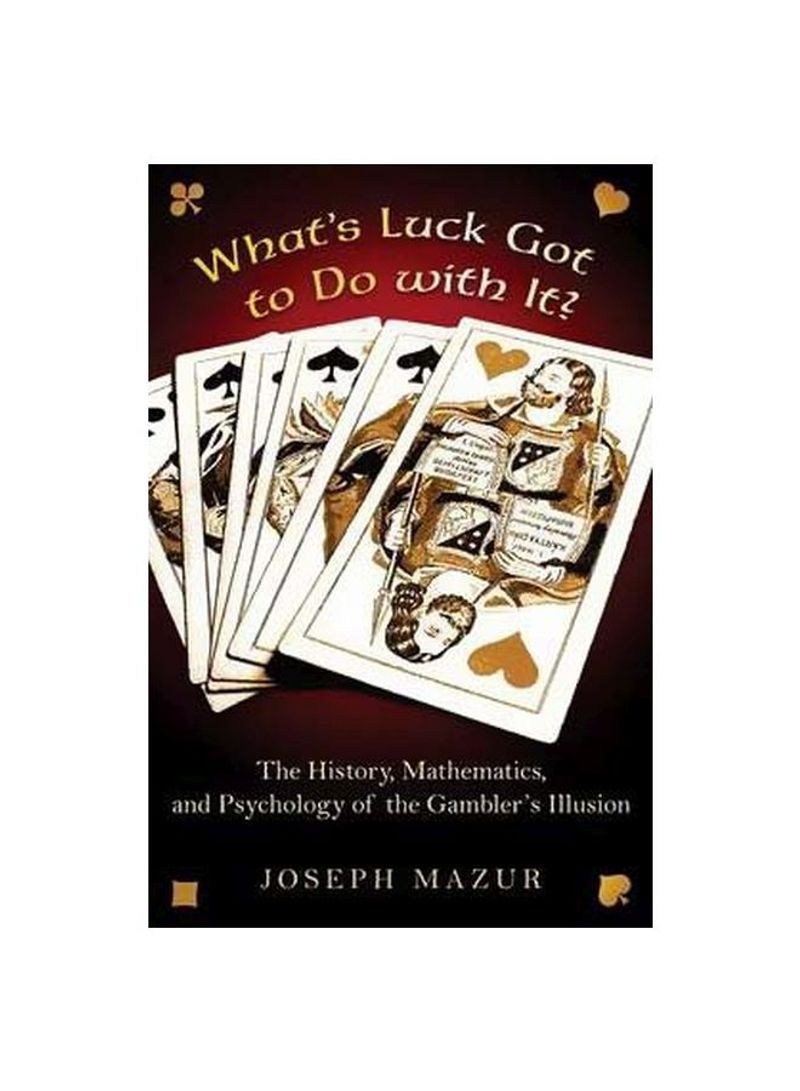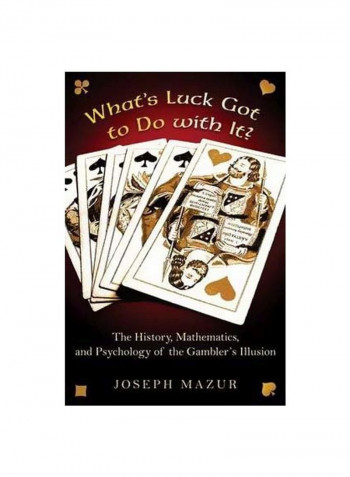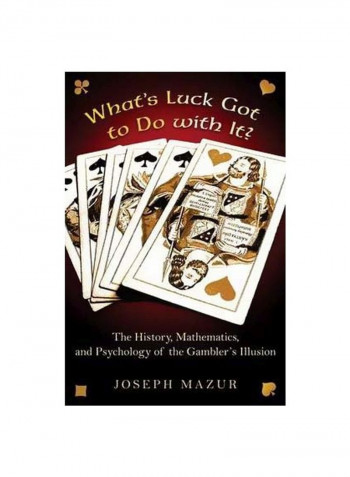What's Luck Got To Do With It?: The History, Mathematics, And Psychology Of The Gambler's Illusion Hardcover
Recommend
Sort by
Rating
Date
Specifications
Author 1
Joseph Mazur
Book Description
Why do so many gamblers risk it all when they know the odds of winning are against them? Why do they believe dice are "hot" in a winning streak? Why do we expect heads on a coin toss after several flips have turned up tails? What's Luck Got to Do with It? takes a lively and eye-opening look at the mathematics, history, and psychology of gambling to reveal the most widely held misconceptions about luck. It exposes the hazards of feeling lucky, and uses the mathematics of predictable outcomes to show when our chances of winning are actually good. Mathematician Joseph Mazur traces the history of gambling from the earliest known archaeological evidence of dice playing among Neolithic peoples to the first systematic mathematical studies of games of chance during the Renaissance, from government-administered lotteries to the glittering seductions of grand casinos, and on to the global economic crisis brought on by financiers' trillion-dollar bets. Using plenty of engaging anecdotes, Mazur explains the mathematics behind gambling--including the laws of probability, statistics, betting against expectations, and the law of large numbers--and describes the psychological and emotional factors that entice people to put their faith in winning that ever-elusive jackpot despite its mathematical improbability. As entertaining as it is informative, What's Luck Got to Do with It? demonstrates the pervasive nature of our belief in luck and the deceptive psychology of winning and losing.
ISBN-13
9780691138909
Language
English
Publisher
Princeton University Press
Publication Date
7/9/2010
Number of Pages
296
About the Author
Joseph Mazur is professor emeritus of mathematics at Marlboro College. His books include "The Motion Paradox: The 2,500-Year-Old Puzzle behind All the Mysteries of Time and Space" and "Euclid in the Rainforest: Discovering Universal Truth in Logic and Math".
Editorial Review
This thoughtful and engaging book exposes a vitally important and timely topic, and Boushey is uniquely positioned to address it.--Ruth Milkman, City University of New York This is a thoughtful and intelligent book.--Tyler Cowen"Bloomberg View" (08/29/2016) Heather Boushey presents a compelling case for why achieving the right balance of time with our families and at our workplaces is vital to the economic success and prosperity of our nation. I've been honored to see her work up close through 'The Shriver Report' and I'm now glad that it's going to be available to an even wider audience. This is a must read for the public and policymakers alike.--Maria Shriver Time is our most precious asset, and families feel like they have less and less of it. Heather Boushey's important book shows that there is much that policy can do to reclaim our time and our lives. In a rational world its arguments would have an important impact on the future of American economic policy.--Lawrence H. Summers, President Emeritus and Charles W. Eliot University Professor, Harvard University Boushey offers an ambitious public policy agenda to address the increasingly common situation where both the mother and father work outside the home and thus have less time to care for their families... [A] brilliant book.--Suzanne Kahn"Dissent" (10/01/2016) Boushey argues that better family-leave policies should not only improve the lives of struggling families but also boost workers' productivity and reduce firms' costs.--The Economist (09/10/2016) Boushey presents detailed innovations to help Americans find the time they need and help businesses attract more productive workers, revealing how economic efficiency and equity do not have to be enemies.--ISE Magazine (12/01/2016) [An] ambitious, fast-paced, fact-filled, and accessible book...[Boushey] has a masterful understanding of the nuts and bolts of policy design and has impressively cataloged an array of promising state and local examples. Her policy proposals are not off the beaten path, but her overall argument--simple as it sounds--is a fresh one.-- (04/15/2016) The feminist econ book I never knew I needed...Finding Time is just as essential as Sheryl Sandberg's Lean In and Anne-Marie Slaughter's Unfinished Business. In fact, it picks up where they left off...Boushey makes the financial case for reform, pointing to data that proves that policies like paid leave increase productivity in the workplace, decrease turnover, and, in turn, fuel the economy as a whole.-- (04/20/2016) [Boushey] present[s] evidence that workplaces with flexible, accommodating schedules are more productive than those that emphasize long hours and rigid schedules...[Finding Time] note[s] that countries with extensive work-life policies have higher social mobility and are often more competitive than the United States.--Stephanie Coontz"American Prospect" (04/01/2016)



